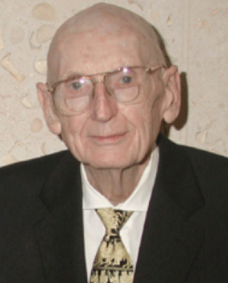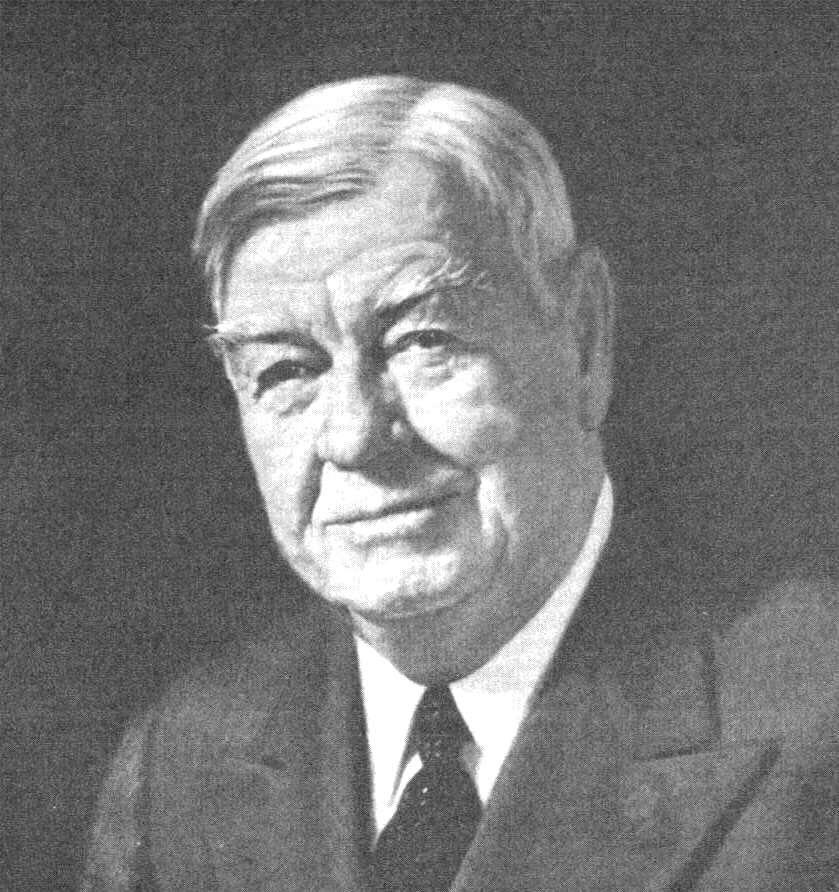The Department of Molecular Biosciences holds three Named Lectures per year, one each honoring the legacies of Drs. Burdette, Gottlieb and Sisson.

The Burdette Distinguished Lecture Series
The annual Burdette Distinguished Lecture in Molecular Genetics is made possible by the continuing generosity of Walter J. Burdette, M.D., Ph.D., through his endowment to the Interdisciplinary Life Sciences (ILS) Graduate Programs (formerly the Institute for Cellular and Molecular Biology).
Learn About Walter J. Burdette & this lecture series
Dr. Burdette (1915-2006), was a distinguished surgeon, clinician and researcher. He completed his B.A. at Baylor University in 1935; in 1936 and 1938, respectively, Dr. Burdette earned Masters and Doctoral degrees at the University of Texas at Austin; in 1942, Dr. Burdette completed studies for a medical degree from Yale University. Until his retirement, Dr. Burdette practiced cardiovascular and thoracic surgery. He participated in the Surgeon General's 1964 report that made the connection between smoking and cancer/cardiovasculor diseases. During his career, he was a researcher, a professor of surgery and an author, with more than 200 published books and articles to his credit. His most recent book, The Basis for Gene Therapy, was published in 2001.
Established in 1999, the Walter J. Burdette Distinguished Lecture Series continues the tradition of genetic research in which Dr. Burdette himself participated and to which he made meaningful contributions. The 2013 Burdette Lecture, "Implications of Telomere Maintenance in Aging-related Processes", was presented by Dr. Elizabeth Blackburn, the 2009 Nobel Laureate in Physiology or Medicine. Previous distinguished lecturers have included several other Nobel Laureates and Howard Hughes Investigators: Dr. Robert Weinberg, Dr. David Baltimore, Dr. Joan Steitz, Dr. Eric Weischaus, Dr. Michael Brown, Dr. Gerald Rubin, Dr. Patrick Brown, Dr. Steven McKnight, Dr. Andrew McMahon, Dr. Andrew Fire, Dr. Sean Carroll, Dr. Thomas Steitz, Dr. Roger Tsiene, Dr. Elizabeth Blackburn, Dr. Bruce Beutler, and Dr. Randy Schekman.

The Clayton Distinguished Lecture Series
The annual Clayton Distinguished Lecture in Molecular Genetics is made possible by the continuing generosity of the Clayton Foundation.
Learn About Benjamin Clayton & this lecture series
Benjamin Clayton, Houston businessman, civic leader and early benefactor of the Biochemical Institute, was one of the founders of the Anderson, Clayton and Company - a Houston cotton firm. He was also a trustee of the Texas Heart Institute and a life-member of the Board of Directors of the Texas Medical Center. He had an abiding interest in scientific research and the relationship of nutrition and disease. In 1932 he founded the Clayton Foundation for Research which has generously supported research at the University of Texas at Austin as well as other components within the UT System, not just in science but in the arts, pharmacy, the UT Law School, and the LBJ School of Public Affairs. Early on Benjamin Clayton became friends with Roger Williams, noted UT-Austin biochemist, and they shared the belief that basic advances in biochemistry and nutrition were critical to the ultimate prevention and treatment of disease. The Biochemical Institute at the University of Texas at Austin was founded in 1940 with a grant from the Clayton Foundation for Research.
Paul D. Gottlieb Distinguished Lecture Series
The Paul D. Gottlieb Distinguished Lecture Series was initiated by the Cellular and Molecular Biology graduate students. The series is dedicated to the memory of the late Paul D. Gottlieb, former director of the School of Biological Sciences and outstanding professor of molecular genetics and microbiology.
Learn About Paul D. Gottlieb & this lecture series
The intent of the series is to offer graduate students the opportunity to closely interact with inspirational scientists with whom they can share their scientific experiences and achievements. All of the distinguished lecturers are chosen and hosted by the CMB graduate students.
The 2012 Gottlieb Lecture, "Time Travel in Experimental Evolution", was presented by Dr. Richard Lenski from the Department of Microbiology and Molecular Genetics at Michigan State University. Previous lecturers include Dr. Frances Arnold, Dr. Mark Ptashne, Dr. Phil Sharp and Nobel Laureate and co-discoverer of the double helix structure of DNA, Dr. James D. Watson.
The John Charles Sisson Memorial Lecture
The John Charles Sisson Memorial Lecture is an annual event, in which an outstanding cell biologist visits the UT Campus to present a research talk and promote and enrich innovative research in the College of Natural Sciences.
Learn more about John Charles Sisson & this lecture series
The endowment that supports this lecture series was established as a venue for the Section of Molecular Cell and Developmental Biology and the Interdisciplinary Life Sciences (ILS) Graduate Programs (formerly the Institute for Cellular and Molecular Biology) to honor and remember their valued colleague, John Charles Sisson, who passed away in his scientific and creative prime in October 2009. John's research was characterized by an in-depth knowledge of his field, combined with insight and ability to bring biochemical, genetic, and cell biological methods to bear on important problems. John was intense and passionate about his science. he is missed in equal measure for his willingness to help and mentor others, teaching and providing constructive criticism with a smile and good humor.
John Sisson received his BS from the University of California at San Diego. He obtained his PhD working with Dr. Matthew P. Scott at the University of Colorado and Stanford University Medical School, and completed his postdoctoral training with Dr. William Sullivan at the University of California at Santa Cruz. John joined the UT faculty in 2001 as a member of the Section of Molecular Cell and Developmental Biology. He was promoted to the rank of Associate Professor in 2007. At the time of his passing, John was elucidating the contribution of the Fragile X Mental Retardation Protein to basic cellular processes in the early embryo. Impairment of Fragile X Mental Retardation Protein function in humans is the most common form of heritable mental retardation and autism. John's work on the mechanism of action of this protein opened up new lines of investigation for the future with important implications for the human disease. John is survived by his wife and research partner, Ophelia Papoulas, PhD, and their son, Oliver Elias Sisson.
The John Charles Sisson Memorial Lecture Series began in November, 2011 with a presentation by Dr. Timothy Mitchison, the Hasib Sabbagh Professor of Systems Biology at Harvard Medical School. In 2013, Dr. Bruce Alberts presented the Second Annual John Charles Sisson Memorial Lecture "Biology past and Biology future: Where have we been and where are we going?". In October of 2014, Dr. Bonnie Bassler, Squibb professor and Chair in the Department of Molecular Biology at Princeton University, delivered the Third Annual John Charles Sisson Memorial Lecture entitled "Manipulating Quorum Sensing to Control Bacterial Pathogenicity".
To contribute to this endowment please contact The College of Natural Sciences Development Office at 512-471-3299 or via email at development@cns.utexas.edu .
To be added to the MBS events email distribution list:
- Visit the UT Lists homepage
- Search for mbs_seminars
- Click the 'Subscribe" link
Contact:
For questions please contact the Seminar Coordinators, mbs_events@austin.utexas.edu.
